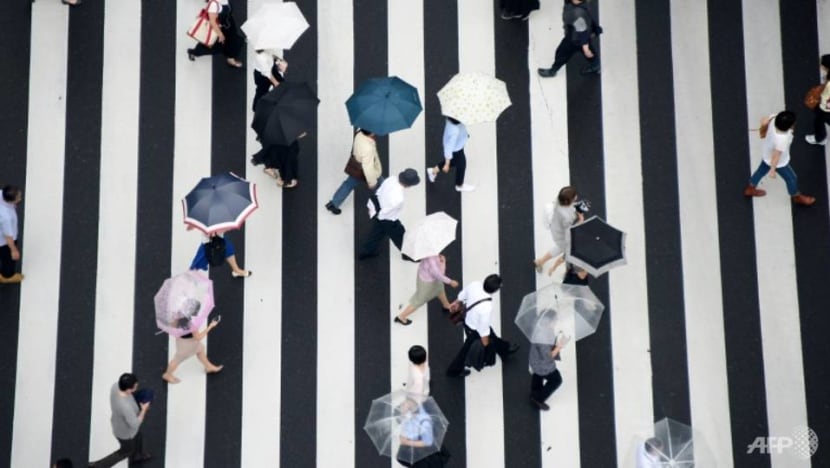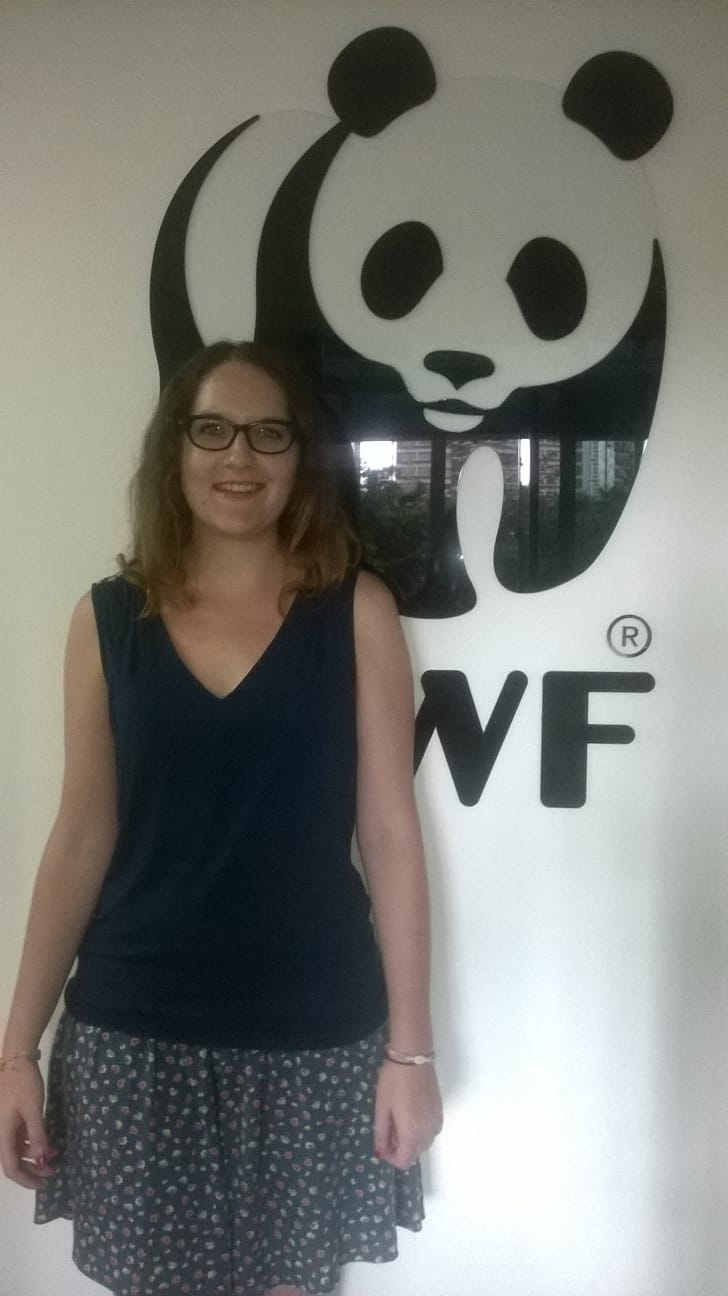'People think the boss is always right': Workplace bullying not uncommon in Singapore, experts say

The issue of workplace bullying is in the spotlight after a number of well-known companies in Singapore were recently accused of having a toxic work environment. (Photo: AFP/Toru YAMANAKA)
SINGAPORE: When Ms Coralie Ponsinet was first offered a job at WWF Singapore in 2015, she was thrilled about the prospect of an exciting and promising career in the sustainability industry.
But her dream job quickly turned into a nightmare.
A junior member of WWF Singapore’s sustainable finance team, Ms Ponsinet began to dread going to the office every day, afraid of what her supervisor would say to her.
Speaking to CNA, the French national said her former boss constantly criticised her performance and manipulated her into thinking everything was her fault.
“Every day was different because she was very manipulative – one day I would cry and the day after, I would be on top of the world because she would say something nice,” she said.
Other times, her boss bullied her into doing additional work after office hours and made inappropriate comments about her personal life and race, she said.
Ms Ponsinet’s case was first brought to light in an article in the South China Morning Post, which reported that she suffered from post-traumatic stress disorder (PTSD) due to workplace bullying.

The issue of workplace bullying came into the spotlight after two other well-known companies in Singapore were accused of having a toxic work environment.
A string of anonymous and unverified allegations was made against the co-founder of production firm Night Owl Cinematics (NOC) Sylvia Chan in early October, accusing her of being verbally abusive to employees.
In September, the co-founder of independent bookstore BooksActually, Kenny Leck, was accused of not paying salaries and making inappropriate advances to younger female employees.
Experts CNA spoke to said bullying and toxic culture in the workplace are more common in Singapore than people think.
“Unfortunately, it’s quite prevalent. But because we live in a society where it's extremely difficult for people who are bullied to speak up, not only in terms of the organisational systems, but also societal cultures, we don’t often hear much about it,” said Associate Professor Abhijeet Vadera from the Organisational Behaviour and Human Resources department at the Singapore Management University (SMU).
“In a lot of Asian cultures, people have been socialised into thinking that the boss is always right and so, they don't want to rattle the status quo by being disrespectful of authority in general,” said Assoc Prof Vadera.
“People may also think that by speaking out against their bullies, especially if it’s their boss, it will make no difference and so they don’t see the point.”
Even when allegations of workplace bullying are made, companies may find it difficult to substantiate the claims, resulting in little or no action.
“Some workplace bullies who are also narcissistic and smart may deliberately make sure that there’s no trail – meaning they don’t put anything on email and are mainly verbally abusive or socially exclude the (victim) from important meetings or access to certain folders for instance,” said Assoc Prof Vadera. “So this makes it difficult to prove any of that.”
FINE LINE BETWEEN DEMANDING AND BULLYING
At the same time, there is a fine line to be drawn when it comes to distinguishing between demanding bosses and those who bully their employees.
The latter typically involves sustained and repeated occurrences of harassment and intimidation, said Assoc Prof Vadera.
“A boss can have high standards and can be demanding, but it's also the way the person makes a request and the way they draw the line, and being understanding and compassionate,” he said.
“When those things don't take place or the boss is aggressive, rude and socially isolate people – basically all the negative traits that come with being demanding – I think that puts that demanding boss in the category of bullying.”
Bad leadership can also seep into the fibres of an organisation, creating a toxic workplace culture where employees may be encouraged to bully or exclude their peers, he added.
“When someone says they are being bullied, people may think – is that person just weak?” he said.
“But that's not the question to ask, the question is – if the person is feeling that he or she is being bullied, and more people in the organisation are starting to feel that they have been bullied, could this have huge consequences on the victims as well as the organisation?”
Assoc Prof Vadera said studies have shown that toxic workplace cultures have a clear impact on employees’ well-being and job satisfaction, as well as spillover effects on their personal life.
“It can affect their interactions with their family after they go home, because they're all negative and unhappy,” he said.
“But it can also have huge consequences for organisations, because employees may start to withdraw from work, or do the bare minimum at work, instead of going above and beyond which is important for the success of organisations.”
Despite this, some organisations may choose not to sack those who have been found to be guilty of bullying, which could harm their reputation, said Dr Kenneth Tai from the Lee Kong Chian School of Business at SMU.
To tackle this, he said companies should have a multi-pronged approach in creating a safe environment for their employees.
This includes establishing a robust internal reporting system to address bullying, such as having clear channels for reporting mistreatment and taking appropriate measures to protect victims and whistleblowers.
“Companies really need to set out guidelines and communicate very clearly to the (victims and whistleblowers) that whatever they share cannot be traced back to them and in no way, affect their performance,” said Dr Tai, whose research focuses on workplace bullying and social exclusion.
He added that programmes such as psychological assistance and counselling can also be rolled out to offer support for the victims to ensure their mental well-being.
Beyond this, companies should also look at fostering a positive workplace culture, where employees have equal say and are respected.
“It is also important for companies to educate people who may not be victims of bullying to recognise signs of bullying, so that they can report negative behaviours,” he added.

NOT ASHAMED AND SPEAKING UP FOR OTHERS
Former WWF employee Ms Ponsinet said she developed depression and anxiety after her experience with workplace bullying. She also had trouble sleeping and had headaches and digestive issues.
“During my last six months in Singapore, I was crying every day on my way to work, because I was panicking. My body and my mind was telling me that I was in danger, but I was so broken that I didn’t even realise it,” she said.
Responding to CNA’s queries, WWF Singapore said it fully complies with the WWF network policy and has no tolerance for bullying, discrimination, harassment and racism of any kind.
CEO R Raghunathan said WWF does not comment on individual cases, however, it has “swiftly taken the recommended remedial actions” in cases where allegations are substantiated. This includes taking disciplinary action.
Ms Ponsinet, who now works as an office manager in Melbourne, said she is determined to regain her footing. The 31-year-old is currently pursuing a diploma in counselling with the hopes of becoming a certified counsellor in future.
Despite this, the invisible scars of workplace bullying remain.
She still occasionally experiences symptoms of PTSD including chest tightness and bouts of anxiety when facing stress at work.
“When people read my story, they might think I’m just a snowflake – and a few years ago, I would have thought the same – but if you think about it, a lot of people talk about bullying at school and say it's unacceptable so why is it acceptable to be bullied at work?” she said.
“The damage is the same, people suffer forever and the worst thing is we suffer in silence because we think we are alone,” she said. “So that's why I do it, that's why I am speaking up.”



















